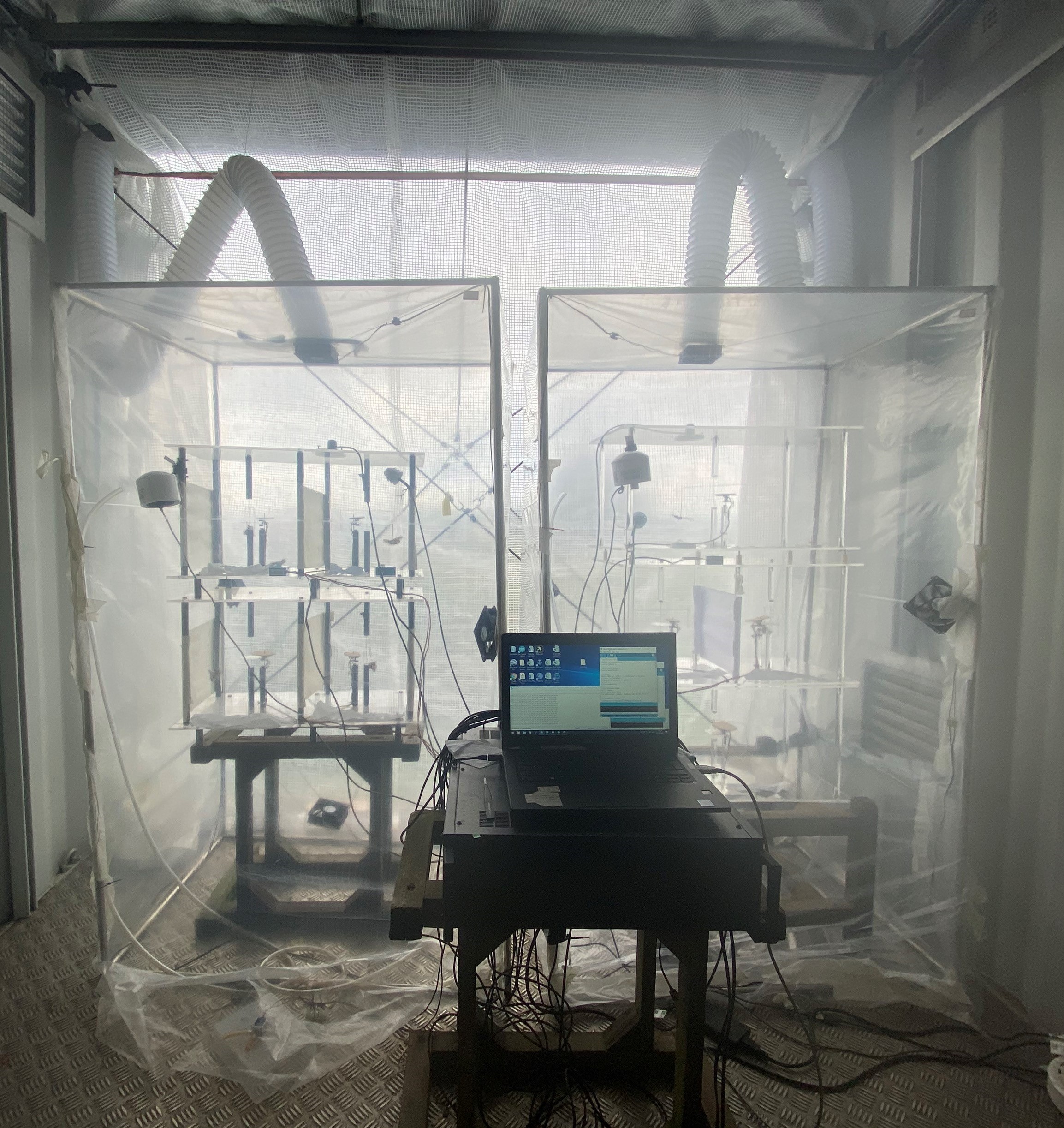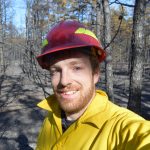Landscape burnings, including wildfires and fires purposely lit for clearing or managing land, are widespread globally, occurring in almost all vegetated biomes worldwide. It releases large amount of smoke, which is composed of a mix of gases and particulates. These smoke emissions may have significant effects on insects.
The first part of this PhD project, which has culminated in the first paper of the PhD, titled “Strong impacts of smoke polluted air demonstrated on the flight behaviour of the painted lady butterfly (Vanessa cardui L.)”, aims to examine the behaviour of adult V. cardui flying in different levels of combustion-generated airborne PM2.5, comparison this to flying under ‘clean air’ conditions. Result showed that V. cardui flying in smoke-contaminated air significantly affected their flight behaviour, and we found a strong negative correlation between flight speed and the concentration of fine particulate matter (PM2.5).
The second experiment has continued to examine the behaviour of adult V. cardui, but flying in more realistic smoke environment for longer period (6 hours), and investigating whether particles or gaseous emissions from smoke impact on V. cardui. This experiment provided more information how smoke from landscape burning impact butterfly migration.
This project is also co-supervised by Dr Robert Francis (KCL)









